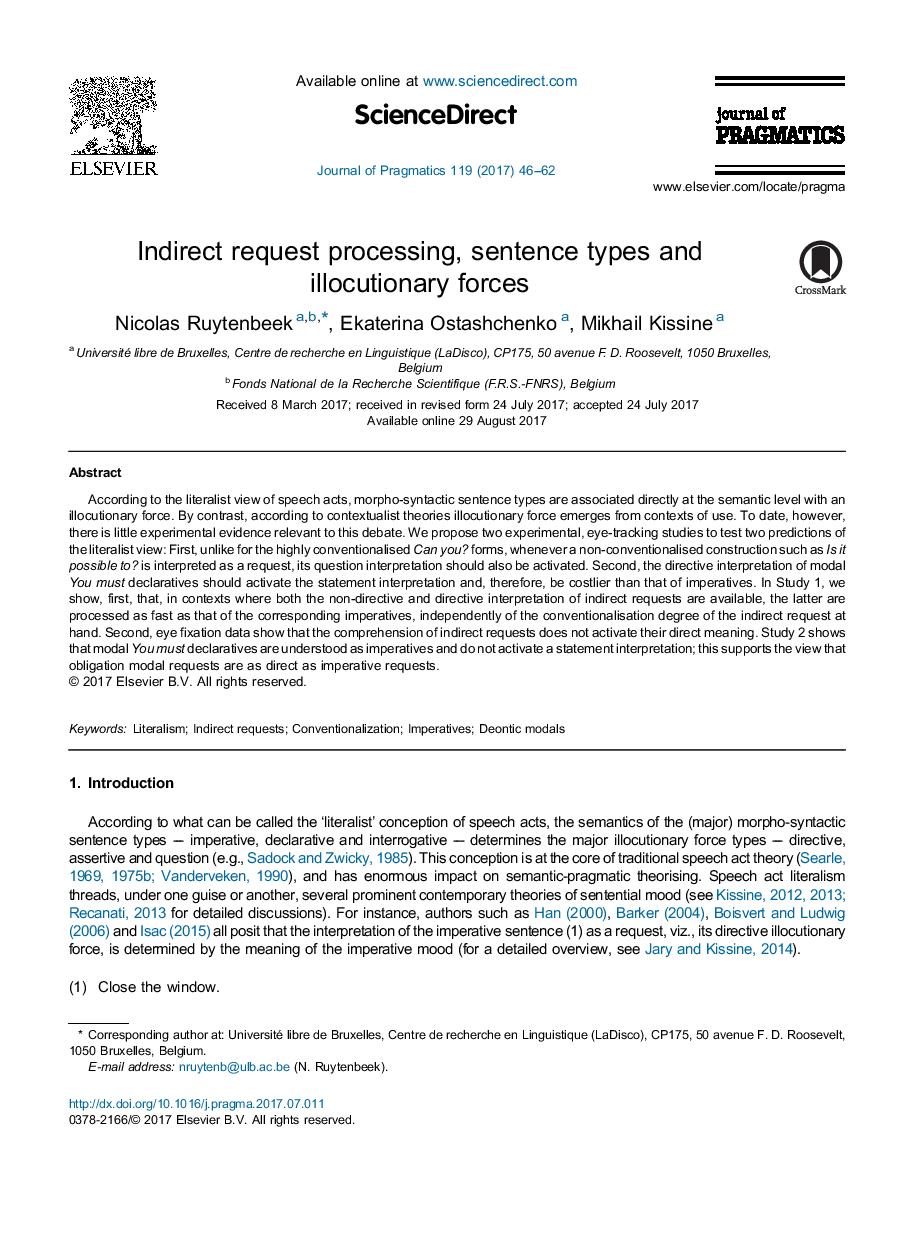| کد مقاله | کد نشریه | سال انتشار | مقاله انگلیسی | نسخه تمام متن |
|---|---|---|---|---|
| 5042703 | 1474681 | 2017 | 17 صفحه PDF | دانلود رایگان |
- According to literalism, sentence types encode an illocutionary force component.
- In two eye-tracking studies, we test the literalist predictions.
- Conventionalised indirect requests are processed as fast as imperatives.
- Indirect requests do not activate their direct meaning.
- Obligation declaratives are understood as imperatives.
According to the literalist view of speech acts, morpho-syntactic sentence types are associated directly at the semantic level with an illocutionary force. By contrast, according to contextualist theories illocutionary force emerges from contexts of use. To date, however, there is little experimental evidence relevant to this debate. We propose two experimental, eye-tracking studies to test two predictions of the literalist view: First, unlike for the highly conventionalised Can you? forms, whenever a non-conventionalised construction such as Is it possible to? is interpreted as a request, its question interpretation should also be activated. Second, the directive interpretation of modal You must declaratives should activate the statement interpretation and, therefore, be costlier than that of imperatives. In Study 1, we show, first, that, in contexts where both the non-directive and directive interpretation of indirect requests are available, the latter are processed as fast as that of the corresponding imperatives, independently of the conventionalisation degree of the indirect request at hand. Second, eye fixation data show that the comprehension of indirect requests does not activate their direct meaning. Study 2 shows that modal You must declaratives are understood as imperatives and do not activate a statement interpretation; this supports the view that obligation modal requests are as direct as imperative requests.
Journal: Journal of Pragmatics - Volume 119, October 2017, Pages 46-62
